Iran Not To Give Up On Soleimani's Revenge For A Nuclear Deal
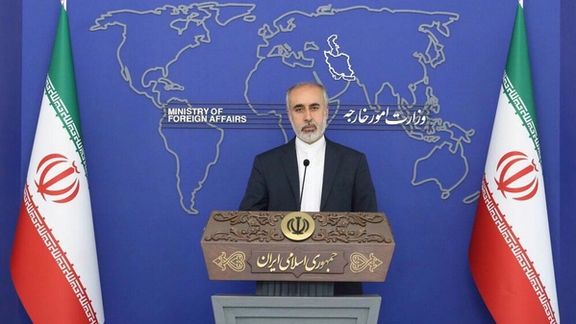
Iran’s foreign ministry has rejected rumors that the country has given up efforts to avenge IRGC commander Qasem Soleimani death for the revival of the 2015 nuclear deal.

Iran’s foreign ministry has rejected rumors that the country has given up efforts to avenge IRGC commander Qasem Soleimani death for the revival of the 2015 nuclear deal.
During his weekly briefing on Monday, foreign ministry spokesman Nasser Kanaani said that the Islamic Republic’s position regarding the killing of Soleimani is clear, and that “the government and people of Iran will never forget the cowardly assassination of the great commander by the American government.”
Soleimani, commander of the Revolutionary Guards (IRGC) extra-territorial Quds Force, was killed in Baghdad along with nine others in 2020 by a drone strike ordered by then-President Donald Trump. The Qods Force under Soleimani became deeply involved in the conflicts in Syria and Iraq. Trump claimed that the general, who was Iran’s main operative in the Middle East, was killed because he was planning attacks on US troops.
In March, Iran said its judiciary would start the trial for all those involved in the killing of IRGC commander, including Trump, former secretary of state Mike Pompeo, and former CENTCOM chief Kenneth McKenzie. A lot of high-ranking Iranian military personnel and political figures, including the Supreme Leader, have promised revenge for the Soleimani's targeted killing.
The case for the revenge against the killers of Soleimani cannot be forgotten and it will not be amenable to compromise and reconciliation, Kanaani said, noting that the Islamic Republic will exhaust all of its capabilities “to bring the killers of the general to justice.” He added that Iran acts with seriousness in this regard and that the issue is not related to the nuclear negotiations.
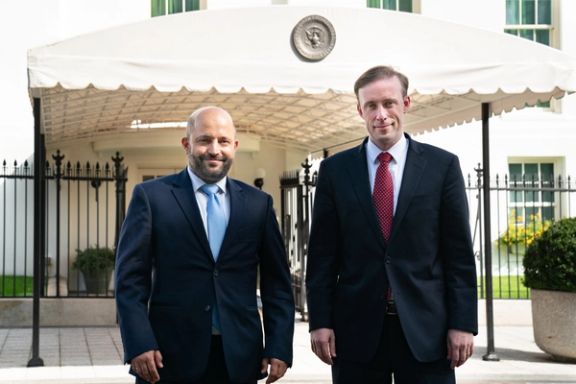
Israel plans to try until the very last moment to make the United States reject the nuclear deal, as Tehran claims progress has been made and claims it won important concessions.
Israeli National Security Adviser Eyal Hulata is expected to head to Washington this week for a series of meetings with US officials on Iran’s nuclear issue as part of the attempts to sway Washington to walk away from the revised accord just as Tehran hinted it may be willing to finalize the agreement.
A senior Israeli official told KAN news that the US has not made any final decision with respect to the deal, aimed at reviving the 2015 JCPOA signed with Russia, China, France, Germany and the United Kingdom.
The official, however, added that the dynamic appears to be one that is leading to a conclusion of the indirect negotiations that the European Union has been mediating between the US and Iran to revive the deal.
The leaders of Western powers engaged in Iran's nuclear talks discussed efforts to revive the JCPOA, the White House said on Sunday in a statement. US President Joe Biden, British Prime Minister Boris Johnson, French President Emmanuel Macron and German Chancellor Olaf Scholz participated in the call.
“The Europeans sent Iran a final offer, which doesn’t even meet the demands that the Americans committed to, and established that this offer was ‘take it or leave it,'” said a senior Israeli official at the highest level of decision-making last week.
Earlier on Monday, Iran’s the foreign ministry said the US has not replied to Iran’s latest response in the nuclear negotiations, but the talks are still on track to continue.
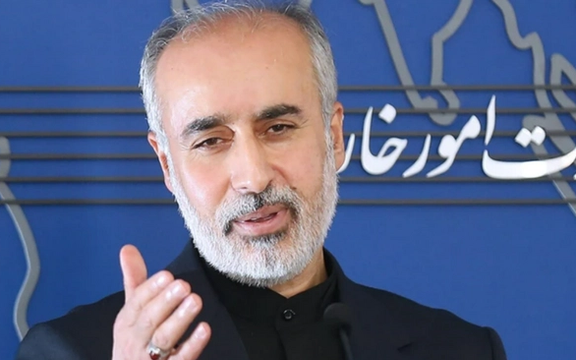
The US has not replied to Iran’s latest response in the nuclear negotiations, but the talks are still on track to continue, the foreign ministry said Monday.
In his weekly briefing with reporters in Tehran Nasser Kanaani, spokesman for the foreign ministry underlined that Iran had sent its response on time to the latest European Union proposal for a nuclear agreement, but the US has not responded yet.
Speaking about the delay in a US response, Kanaani said, “American government’s internal issues, such as pressure by radicals and the Zionist lobby on the government…will not deter Iran from pursuing its priorities.”
The Biden Administration faces resistance from most Republicans and some Democrats for trying to revive the 2015 nuclear accord known as the JCPOA. Recent charges by the Jusctice Department about Iranian agents trying to assassinate former Trump administration officials has not made the task any easier.
He gave a cautious response to a question about the success of the talks. “We can speak about whether the negotiations were fruitful once the European Union announces it has received a response from the Americans. So far, this has not happened,” Kanaani said.
He also urged the media and the public not to pay attention to unofficial accounts of the talks, “because the negotiations are sensitive and naturally, we should pass judgement based on the official views of the countries involved…”
Last week, leaks emerged from Tehran about considerable “concessions” Washington has made to Iran so far. On Sunday, the ad hoc spokesman of the negotiating team, Mohammad Marandi also gave an interview to a local paper claiming that Iran had “exceptional” results in the talks in the past one month.
“We were able to achieve huge progress in all areas, including guarantees, verification and sanctions issues, as well as issues related to the IAEA,” Marandi highlighted.
“So far, we had good progress,” Kanaani said, “but negotiations are a totality and there should be agreement on all issues. As long as there is no [overall] agreement, we cannot say we have reached a deal…although remaining issues in terms of percentage [of all issues] are small, but they are important…,” he said.
Washington has not responded to the specifics of the leaks from Tehran about Iranians getting most of what they wanted, but has dismissed talks of having made major concessions.
US President Joe Biden, British Prime Minister Boris Johnson, French President Emmanuel Macron and German Chancellor Olaf Scholz, the leaders of the four Western negotiating countries discussed the nuclear talks in a call on Sunday, that was apparently convened to discuss Ukraine.
“In addition, they discussed ongoing negotiations over Iran’s nuclear program, the need to strengthen support for partners in the Middle East region, and joint efforts to deter and constrain Iran’s destabilizing regional activities,” the White House announced.
The announcement gave no clue about a possible US response to the EU, but the emphasis on deterring Iran’s destabilizing regional activities was perhaps a sign to reassure regional allies, especially Israel that remains strongly opposed to the new agreement so far negotiated by the Biden Administration.
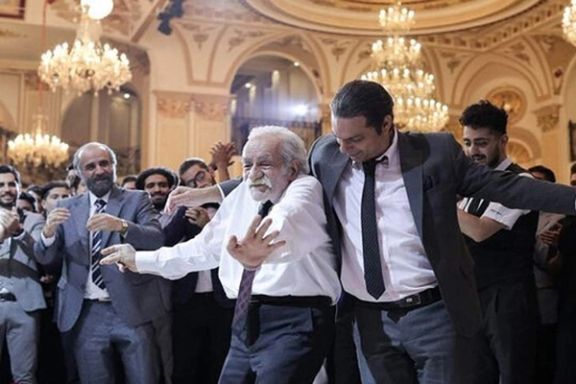
Iran's minister of culture and Islamic guidance has threatened filmmakers and actors with a work ban if they criticize Islamic Republic entities and officials.
Iran’s Intelligence Minister Esmail Khatib had also warned government’s critics on Thursday against writing statements and open letters to criticize the current situation in the country.
In a program aired by the state broadcaster (IRIB) Saturday evening, the minister of culture Mohammad-Mehdi Esmaili said Iranian films cannot participate in foreign film festivals if they are not authorized to be shown in Iran.
Films, music and books go through a rigorous censorship process in Iran and often have to change and re-write segments to be accepted by religious-political censors.
“Everything has been carefully considered and there is no room for leniency,” Esmaili said, adding that “the future of those who act against our national interests, speak against the Iranian people, and take advantage of the cruel sanctions against the Iranian people, is clear.”
The minister also accused the government of former President Hassan Rouhani of too much leniency. “The former president said we should not force people to go to heaven but in an Islamic system we have the duty to work for people’s benefit.”
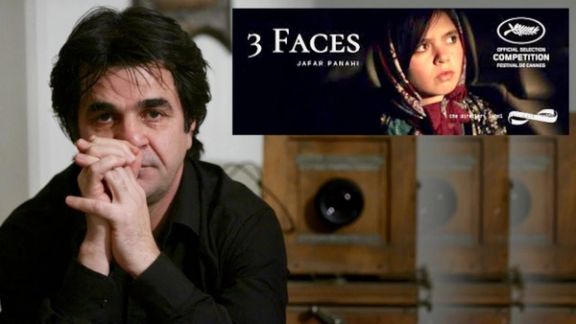
Esmaili defended the ban on filmmakers and actors and insisted that it was not against the law. Authorities will continue doing the same and will not surrender to media pressure or the artists’ protests, he stressed.
The ministry recently suspended Leila’s Brothers, a film by renowned filmmaker Saeed Roustayi (also spelled as Roustaee), due to its unauthorized participation in the Cannes Film Festival.
“I hope my film will be allowed to be shown in Iran, but I will not surrender to censorship unlike in the case of Just 6.5,” Roustayi told Iran International on the sidelines of the festival. “Censorship ruined that film. This time I prefer my film is banned rather than censored [for viewers in Iran].”
Just 6.5 (2019) was nominated for the César Award for Best Foreign Film in 2021 while Leila's Brothers (2022) was nominated for the Palme d'Or at the 2022 Cannes Film Festival.

Informed sources told Iran International earlier this week that that the intelligence ministry and the ministry of Islamic guidance have threatened more than 100 film industry figures to withdraw their signatures from a May statement titled “Lay Down your Gun” or be banned from working.
The statement by filmmakers had urged military and security forces not to use force protesters during anti-government demonstrations.
Dissident filmmakers Mostafa Aleahmad and Mohammad Rasoulof who had prepared the statement were arrested and others were pressured to revoke their signatures soon after it was issued. Award-winning film director Jafar Panahi was sent to Evin prison to serve a previous six-year sentence after being arrested for protesting the detention of Aleahmad and Rasoulofoutside Tehran’s Evin Prison.
Informed sources have told Iran international that next week authorities will release a list of artists who are banned from work. Authorities in the past few weeks have informed ten documentary filmmakers of a ban on leaving Iran and several actors and filmmakers including actress Taraneh Alidoosti, film editor and member of the Academy of Motion Picture Arts and Sciences Haideh Safiyari, actor Navid Mohammadzadeh, Iranian-born Afghan actress Fereshteh Hosseini, and Saeed Roustayi have reportedly been banned from working.
“We haven’t committed any crimes and there has been no trial. What are you banning us from?” Alidoosti wrote in an Instagram post on August 17.
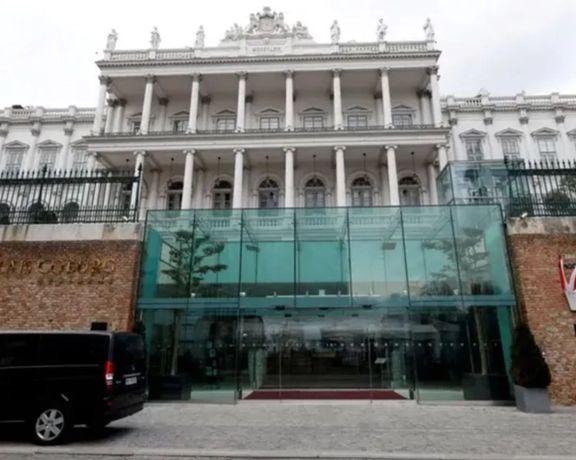
The leaders of Western powers engaged in Iran's nuclear talks discussed efforts to revive the 2015 JCPOA accord, the White House said on Sunday in a statement.
In addition to the Russian invasion of Ukraine, “they discussed ongoing negotiations over Iran’s nuclear program, the need to strengthen support for partners in the Middle East region, and joint efforts to deter and constrain Iran’s destabilizing regional activities," the White House said in its description of the call among the four allies. It did not provide any further details about the issues concerning the Middle East.
US President Joe Biden, British Prime Minister Boris Johnson, French President Emmanuel Macron and German Chancellor Olaf Scholz participated in the call.
Last week, the European Union and United States said they were studying Iran's response to what the EU described as a "final" proposal to restore the deal.
Earlier in the day, Mohammad Marandi, the de facto spokesman for Iran's nuclear negotiating team, said that Tehran has received considerable concessions from Washington in the nuclear talks.
A leaked report from Tehran on Friday, August 19, said that Iran’s chief nuclear negotiator Ali Bagheri-Kani had given local reporters in a closed-door briefing a list of “concessions” obtained from the United States.
These included exempting a range of Iranian government-linked entities from sanctions imposed for their role in Iran’s terror-related activities, and a pledge not to sanction any entity for links with the Revolutionary Guard.
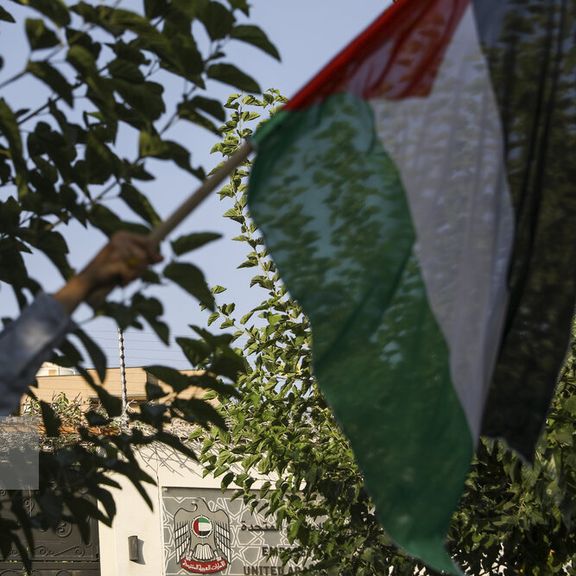
The United Arab Emirates says its ambassador to Iran, Saif Mohammed Al Zaabi, will resume his duties at the embassy in Tehran in the coming days.
The UAE's foreign ministry said in a statement on Sunday that the decision was made "in line with UAE efforts to strengthen relations with Iran and as part of a previous decision to increase diplomatic representation to the rank of ambassador.”
Noting that the decision followed a recent phone call between the two countries’ foreign ministers Sheikh Abdullah bin Zayed Al Nahyan and Hossein Amir-Abdollahian held on July 26, 2022, the ministry said the move contributes to “further advancing bilateral relations in cooperation with officials in Iran to achieve the common interests of the two countries and the wider region.”
The UAE had recalled its ambassador from Tehran in 2012 after the then-President Mahmoud Ahmadinejad visited Abu Musa island as part of a tour of Iran’s Persian Gulf coast. Located 60 kilometers off the UAE, the Persian Gulf country claims it as sovereign territory along with the Lesser and Greater Tunb Islands near the Strait of Hormuz. Iran, which claimed control of the islands in 1971, at various points provided documents that indicate the islands were rented out to Arabs during the British colonial period.
Earlier in the month, Kuwait also appointed an ambassador to Iran, more than six years after recalling its top envoy to Tehran in solidarity with Saudi Arabia after it severed ties with the Islamic Republic in 2016. Ambassador Bader Abdullah Al-Munaikh handed his credentials to Amir-Abdollahian on August 13, as Riyadh works to improve ties with the Islamic Republic.